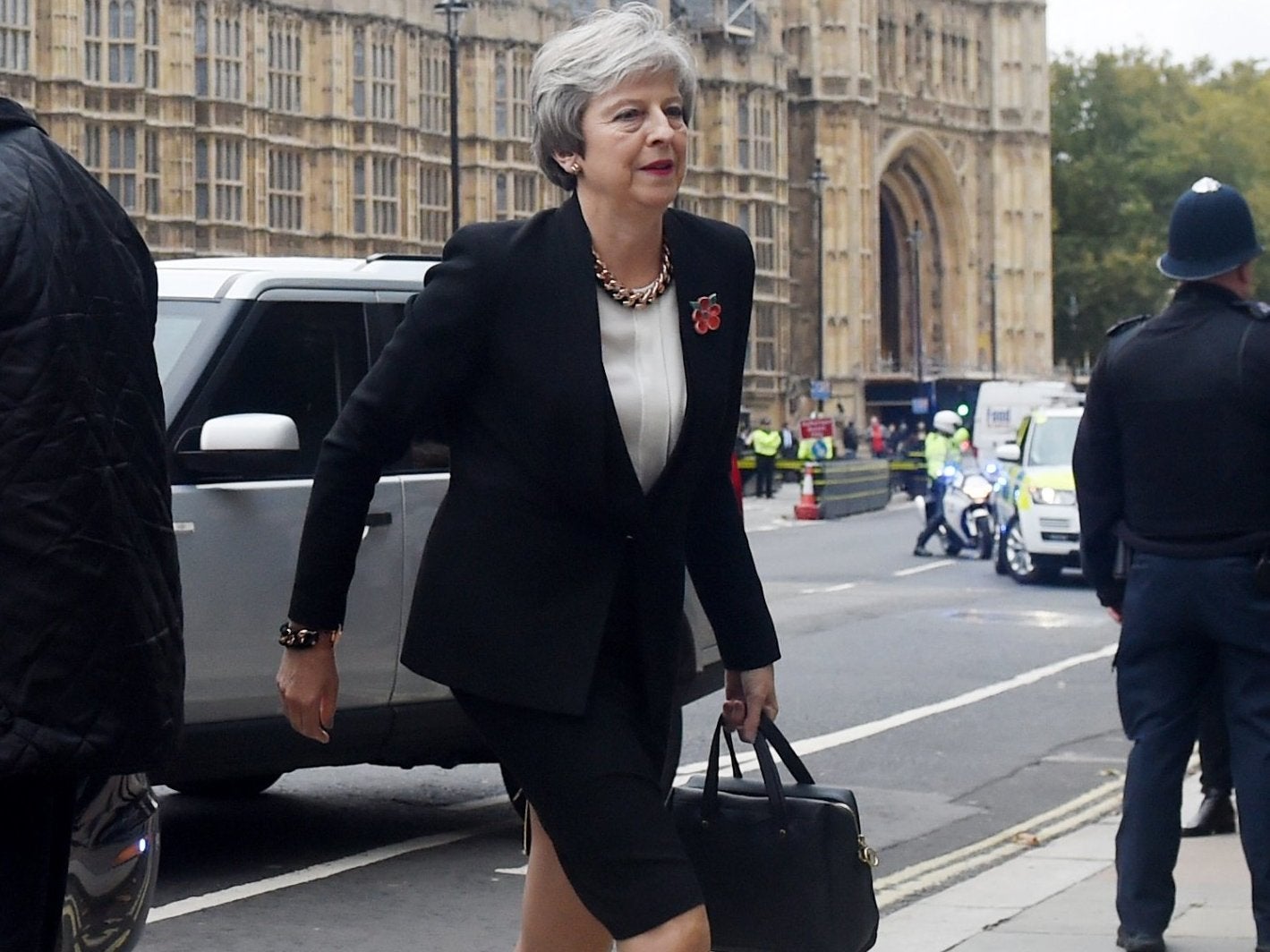Theresa May wants MPs to decide that her bad Brexit deal is better than no deal after all – but there are other options
A majority of MPs oppose a no-deal departure and they could find a way to assert it – if necessary, by extending the two-year Article 50 process beyond March, while Labour could table a motion calling for a general election


Another day and yet more predictions of chaos at Dover, and talk of Doomsday scenarios, “Armageddon” on food supplies, plans to stockpile vital medicines, and hiring ferries to bring in food and medicines via other ports.
You might think chilling media reports about the impact of leaving the EU without an agreement next March would worry Theresa May. Yet she won’t be losing sleep. Why? Even staunch opponents of Brexit admit privately that they help her frame the choice facing the nation as between her Brexit deal and a chaotic no-deal exit. “She has played it cleverly,” said one MP who wants to stop Brexit. “In some ways we, and the media, have played into her hands by talking up the dangers of no deal.”
Crucially, this will be the binary choice May presents to parliament next month if, as looks increasingly likely, her deal is approved by her cabinet in the next few days and then agreed with the EU. The spectre of “no deal” also weighs heavily on the cabinet: it knows the government has left it very late to make sufficient preparations for a cliff-edge departure and needs the 21-month transitional period a withdrawal agreement would bring. “Her strongest card is that there is no appetite among us for no deal,” one cabinet member conceded. Some Brexiteer ministers will sign off May’s deal through gritted teeth. They do not share the willingness of their backbench allies to gamble on a crashout (and the “hiccups”, as David Davis euphemistically calls them). May is quietly committing the ultimate U-turn: a bad deal is now better than no deal. Of course, she can’t say her deal is bad. She can say it might not be perfect, but is the only alternative to leaving the EU without one.
The scary prospect of “no deal” will matter most when the Commons is asked to approve the withdrawal agreement. The crucial vote will be very close. Today it became even more dangerous for May when the Democratic Unionist Party (DUP) accused her of reneging on her promise to avoid a customs “border in the Irish Sea.”
If May cannot rely on the 10 DUP MPs, she will need to persuade even more Tory MPs to back her deal. She might also need the support of 25 to 30 Labour MPs to secure a majority.
At first glance, it looks impossible. But, as the crunch vote looms into view, the no-deal medicine may be working for May among waverers on the opposition as well as government benches. “I cannot vote for no deal; it would damage my constituents,” is a phrase being used privately by some Labour as well as Tory MPs. In other words, they will support May’s deal even though they know it’s a bad one.
It doesn’t have to be like this. Would the government, the opposition, MPs and business really sit on their hands for three months and go like lemmings over the cliff edge in March? No. There would be other options. Rejection of her deal by MPs would not necessarily be the end of the road for May. Although another prime minister might resign in such circumstances, she might well see it as her duty to carry on and go back to the EU for further negotiations. There is nothing to stop the Commons vote being followed by another one on a tweaked deal; there would still be time for one more heave. Some ministers might push for a Norway-type deal as a temporary “port in a storm”. Backbench Brexiteers would press for an EU-Canada-style free trade agreement.
Crucially, parliament would surely take control of the process. A majority of MPs oppose a no-deal departure and they would find a way to assert it – if necessary, by extending the two-year Article 50 process beyond March. Labour would table a motion calling for a general election. When the Tories voted that down, a Final Say referendum would look a lot more appealing to many more MPs than it does today. Jeremy Corbyn would come under strong pressure from his party to support what might look the best way out of the cul-de-sac.
Wavering MPs tempted to back May’s agreement should tune in to the different arguments she will deploy to limit the rebellion by hardline Brexiteers. Threatening them with “no deal” won’t cut much ice since some would actively welcome such a departure. Mixing her messages, May will tell Eurosceptics that voting down her deal could result in “no Brexit” as it would lead to a general election or referendum. She can’t have it both ways, can she?
Those who want to stop the slow motion car crash of Brexit, or who want a Final Say referendum, need to make a new argument, and soon: saying “no” to May’s deal does not mean a no-deal exit.
Join our commenting forum
Join thought-provoking conversations, follow other Independent readers and see their replies
0Comments